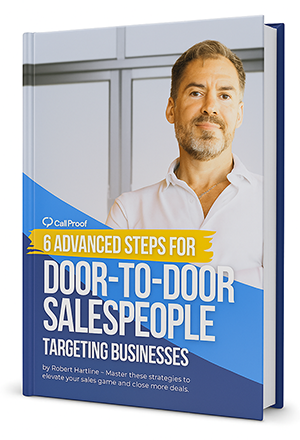I never realized being a band geek was leading me to entrepreneurship. I grew up in Germany on an army base. With my dad as my music teacher, I started playing alto saxophone in seventh grade and continued through high school. The endless hours of practice and the cut-throat competitions did more than just make me a better sax player. They taught me a lot of sales strategies and made me an entrepreneur. Four principles took root in me back in my band days, and they continue to prove true in business year after year.
1. Fail Before You Sail
The first time you blow into a horn it sounds like a dying animal. No matter your natural ability, no one just picks up an instrument and plays it like a pro from the start. In fact, the first few songs you play will be sporadic noise, not fluid music.
Related: Do You Have What It Takes to be a Sales Manager?
Similarly, you’ll probably fail before you sail when you’re starting a business. Accept it and learn from it. Just because you struggle at the beginning doesn’t mean you won’t eventually succeed.
2. Learn to Practice
Hours upon hours of practice go into learning to read music, control air flow, and coordinate finger dexterity before an attempt on the horn sounds like music. Then, that practice must continue in order to perform well.
Entrepreneurship also requires regular practice. You don’t just practice at the beginning and then claim you’ve learned all there is to know. You work unceasingly to perfect each note and anticipate your next moves.
In band, you read music and take lessons from the experts to improve. There’s sheet music for business too. Books such as E-Myth provide a note by note explanation of how to start your business. Take the proven strategies and balance them with your own approach.
Once I understood a piece of music, I learned when and where to improvise solos. In business, there’s also a place to do your own thing. The people that cause waves in the business community are the ones improvising.
3. Play the Same Piece of Music
A band works as a team playing the same sheet of music at the same tempo to create a greater melody. If the drummer can’t keep the beat, it throws off the whole band. If a director doesn’t know the piece of music well, he may cue the wrong people and mess up the piece entirely. In band, it’s not too difficult to identify the weak player and correct the mistake. In business, this proves a little more challenging.
Related: The Single Most Important Quality of a High-Performance Sales Culture
A business team needs to follow the same plan. If people are off track, there needs to be a way to bring them back on course. This concept spurred the idea of CallProof. I want to catch mistakes as they happen because of the value of correcting in real-time. Then, we get to fix them before they became a real problem.
4. Earn Your Chair
Competition pushes us to excellence. In band, we competed for first chair, challenging each other to see who could play the music better. Sales is the same. You’re all vying for top spot, but just as one person is clearly best, someone else is worst.
As the leader of your company, you have to make tough decisions about firing weak employees so the best people can propel the business forward. In band, it was always clear who spent more time practicing music based on their performance. In sales, the results tell who’s invested their time, but CallProof makes that clear as day.
I knew that my practice hours on the sax, working my way up to first chair and then to All-European Jazz Saxophonist, made me a better musician. In reality, that time also birthed in me these principles that apply to much more than high school music. To be a successful entrepreneur, you have to know your content, your presentation, and your audience. And no matter how long you’ve been in the business, you can’t stop practicing.


